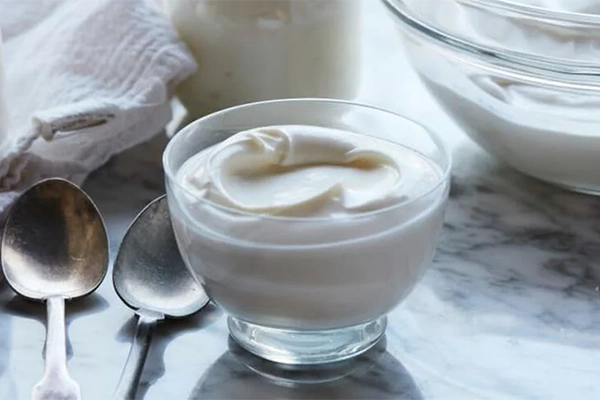Carbonated soft drinks are one of the most popular drinks in the world, consumed with meals, at parties or even as a snack. These drinks are available in many varieties, from sugary versions to sugar-free diet sodas. However, there are different and sometimes incorrect beliefs about their benefits and harms. In this article, we will examine the of carbonated soft drinks benefits and answer some misconceptions.

1. Keeping the body hydrated
Although carbonated soft drinks are often criticized for their sugar or additives, their role in providing part of the body’s fluids cannot be ignored. Consuming these drinks, especially on hot summer days or after physical activity, can restore a sense of freshness and vitality to a person. Of course, it is not recommended to completely replace water with carbonated drinks.
2. Feeling refreshed and relieving fatigue
The presence of caffeine in some types of carbonated drinks helps to increase concentration and relieve fatigue. For this reason, many people use carbonated drinks during the day or when doing long-term tasks.
3. Improve digestion
The gas bubbles in these drinks can help relieve the heaviness of the stomach and stimulate the digestive system. Some people prefer to drink carbonated drinks after a heavy meal to feel lighter.
Misconceptions about carbonated drinks
1. Increase in weight and soft drinks calories
One of the most common misconceptions is that all carbonated drinks cause obesity. While many types of these drinks are high in calories, diet versions with low or even zero calories are also available in the market. Therefore, choosing wisely and paying attention to the nutrition table of soft drinks can prevent you from getting extra calories.
2. soft drinks Carbohydrates
Carbonated drinks usually contain simple carbohydrates (such as sugar) that are a quick source of energy. This may be useful for people who are physically active. However, consuming too much sugar can cause problems such as high blood sugar and tooth decay. Choosing low-sugar or sugar-free sodas is a good way to control carbohydrate intake.
Soft drinks calories
Carbonated drinks vary in terms of calorie content:
Regular soft drinks: Contains 100-150 calories per 355 ml
Diet sodas: almost no calories (0-5 calories)
Carbonated fruit drinks: 180-120 calories per 355 ml
soft drinks carbohydrates
Carbohydrate content in soft drinks:
Regular soft drinks: contain 25-30 grams of carbohydrates (mainly sugar)
Diet sodas: no carbohydrates
Artificial sweeteners have replaced sugar in diet sodas
How much soft drinks is safe?
Fizzy drinks in moderation are safe for most people. According to the advice of nutrition experts, it is better to limit the consumption of these drinks to a few times a week. Its daily and excessive use can lead to problems such as reduced calcium absorption, increased risk of type 2 diabetes and damage to tooth enamel. It is also recommended to choose sugar-free or low-calorie versions to maintain health.
For all their benefits, fizzy drinks can pose health risks if consumed in excess. Paying attention to the amount of calories and carbohydrates in carbonated soft drinks, choosing low-calorie versions and limiting their consumption can help to enjoy this popular drink without health concerns. Finally, knowing the true and false beliefs about carbonated drinks will lead to better healthy lifestyle decisions.
Safety recommendations for the consumption of carbonated drinks
Although carbonated soft drinks are enjoyable and popular, their consumption requires compliance with principles to avoid possible side effects. In this section, recommendations are provided for the safe consumption of carbonated beverages. These tips will help you to enjoy the of carbonated soft drinks benefits and minimize its risks.
1. Balanced consumption of carbonated drinks
To enjoy the of carbonated soft drinks benefits without the added risks, you need to limit your consumption. Drinking large amounts daily can lead to weight gain, digestive problems, and reduced mineral absorption. It is recommended to limit the consumption of carbonated drinks to once or twice a week.
2. Choosing low-calorie or sugar-free soft drinks
One of the common concerns about these soft drinks calories. Regular drinks contain high amounts of sugar, which can lead to weight gain and diseases such as diabetes. Choosing low-calorie or sugar-free versions can be a good option to reduce these risks.
3. Control the consumption of soft drinks carbohydrates
Carbohydrates in soft drinks carbohydrates are usually simple and raise blood sugar quickly. This can be especially problematic for diabetics or those on a controlled diet. It is recommended to read the nutrition label of the drink before consumption and choose soft drinks with low sugar.
4. Use with food
To reduce the negative effects, drink carbonated drinks preferably with meals. Consuming these drinks on an empty stomach or in large quantities may irritate the digestive system or cause bloating.
5. Attention to teeth health
Carbonated drinks contain phosphoric acid and sugar, which can damage tooth enamel and cause decay. To reduce this effect, use a straw to reduce the direct contact of the drink with the teeth. Also, rinse your mouth with water after use.
6. Choosing healthier alternatives
Although sodas are an attractive option, alternatives such as flavored sodas or iced teas can be better options. These drinks provide the sensation of fizz without additives and added sugar.
7. Consult a nutritionist
If you have certain conditions, such as diabetes, overweight, or digestive allergies, it is best to consult a nutritionist before continuing to consume carbonated soft drinks for proper guidance.
By following the above recommendations, you can benefit from the of carbonated soft drinks benefits and minimize their negative effects. Conscious consumption and choosing healthier options can play an effective role in improving your lifestyle and overall health.
Harms of carbonated drinks: harmful effects on health
Contrary to popular belief about the of carbonated soft drinks benefits, these drinks can have harmful effects on health. In this article, we will comprehensively review their disadvantages.
soft drinks calories and its negative effects
– Each can of regular soda contains 140-150 calories
– Daily consumption can lead to:
Unwanted weight gain
– Excessive obesity
– Metabolic disorders
– Empty calories without nutritional value
Soft drinks Carbohydrates in carbonated beverages and related problems
– High sugar content (30-40 grams per can)
– Negative effects on health:
– Sudden increase in blood sugar
– The risk of type 2 diabetes
– Disturbance in the body’s metabolism
How much soft drinks is safe?
The fact is that regular consumption of carbonated soft drinks is not safe at all:
1. Short-term risks:
– Tooth decay
– Digestive disorders
– Insomnia (due to caffeine)
2. Long-term risks:
– Cardiovascular diseases
– Osteoporosis
– Kidney problems
Serious damage to health
Effects on the digestive system
– Stomach irritation
– Increased stomach acid
– Chronic indigestion
– Impaired absorption of nutrients
Damage to the teeth
– Tooth enamel erosion
– Increased dental sensitivity
– Acceleration of decay
– Changing the color of the teeth
Effect on bone health
– Decreased calcium absorption
– Increased risk of osteoporosis
– Fragility of bones
– Decreased bone density
kidney problems
– Increased risk of kidney stones
– Kidney dysfunction
– Increased excretion of minerals
– Chronic dehydration
More at-risk groups
1. Children and teenagers
2. Pregnant women
3. People with diabetes
4. People with digestive problems
Alternative solutions
1. Healthy drinks:
– Plain water
– Natural fruit juice
– Herbal teas
2. Practical recommendations:
– Gradual decrease in consumption
– Replacement with healthy drinks
– Consult a nutritionist
Considering the widespread harm of carbonated drinks, it is recommended to minimize the consumption of these drinks. Despite the widespread advertising about the of carbonated
, it should be remembered that the calories and carbohydrates in them can cause serious harm to health. To maintain health, it is better to use healthier alternatives.

Conclusion
Scientific reviews and extensive studies about the of carbonated soft drinks benefits show that despite the pleasant taste and popularity of these drinks, their harm is much greater than their possible benefits. Considering the soft drinks calories, daily consumption of one can of soft drink (contains 140-150 calories) It can lead to significant weight gain throughout the year. Also, carbonated soft drinks (sub keyword) with an average of 30-40 grams of sugar per can can cause metabolic disorders and increase the risk of diabetes.
In response to the question of how much soft drinks is safe is, research shows that regular consumption of these drinks can lead to:
– Tooth decay
– Osteoporosis
– Kidney problems
– Digestive disorders
– Weight gain
– Cardiovascular diseases
Therefore, it is recommended:
1. The consumption of carbonated drinks should be reduced to the minimum possible
2. Use healthy alternatives such as water, natural juice and herbal teas
3. In order to protect the health of yourself and your family, raise awareness about the dangers of carbonated drinks
4. In case of consumption, it must be drunk with food and using a straw to reduce damage to the teeth.










